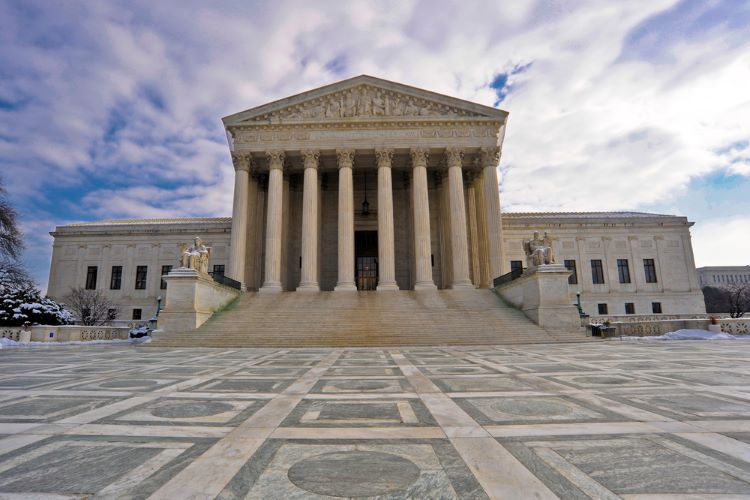Was Apple betrayed by a lawyer at its own firm?
While working for Morgan Lewis & Bockius, an environmental litigation partner reportedly participated for years, with his wife, in the affairs of a tech company that has since become a significant issue for the law firm and a major client.
Now unusual questions are being raised: Was now-former partner John McAleese of Morgan Lewis a patent troll? Did the company in which he and his wife have an ownership interest target a major Morgan Lewis client? And, if so, should the law firm representing the McAleese company be disqualified from suing Apple, a Morgan Lewis patent client?
As far back as 2007, newly unsealed emails produced in discovery show that McAleese was helping his wife plan a patent attack on Apple touch-screen products, along with the named inventor. That culminated in a 35 percent investment in FlatWorld Interactives (the inventor owned the majority), which last year filed what the Law & Disorder blog of Ars Technica characterizes as a “patent troll” suit against Apple. At issue is the use of touch-interactive technology related to swiping gestures made on Apple’s touch-screen devices.
Although McAleese informed the general counsel of Morgan Lewis of the FlatWorld lawsuit both before and after it was filed, it wasn’t until emails were produced in discovery in the San Francisco federal suit that Apple apparently realized the extent of his involvement and objected, according to the article.
Apple is now seeking to disqualify the law firm representing FlatWorld in the litigation, contending that Hagens Berman Sobol Shapiro was helped by McAleese, who had impermissible access to confidential Apple information. McAleese denied that he made use of it and says he never provided legal advice to his wife. A June 11 hearing is scheduled on the disqualification issue.
Law & Disorder says McAleese apparently was recently ousted by Morgan Lewis, which took down his bio page on Thursday and is routing his voicemail to a message that says he is no longer with the firm.
A privilege log sent by FlatWorld to Apple in February listed as confidential multiple emails between the company’s founder and McAleese, bringing the situation to a boil, Law & Disorder reports. An Apple lawyer fired off an email to a Morgan Lewis lawyer on Feb. 25, as soon as he saw the privilege log, he says in a court declaration (PDF) filed last month, and the Morgan Lewis partner forwarded the email to McAleese at 12:48 a.m. along with a message asking for an explanation.
In response, McAleese explained that he and his wife “contributed capital in connection with the start-up” of FlatWorld and said he would be happy to talk with the partner further at his convenience.
Apple subpoenaed Morgan Lewis for more information, and the law firm quickly cooperated by providing McAleese’s relevant email and files. Metadata shows that he edited at least one letter signed by his wife, the Law & Disorder article says.
Jennifer McAleese declined comment on behalf of herself and her husband when contacted by Law & Disorder last week, and Apple and Morgan Lewis didn’t respond to its requests for comment.
Morgan Lewis isn’t the only major law firm that has permitted one of its lawyers to invest in a start-up company of this nature, and Law & Disorder questions whether this is a good idea.
“How many other big-firm lawyers are entwined with ‘start-ups’ that are actually holding companies,” the article wonders aloud, “created to attack the very corporations they are supposed to be defending?”
However, it isn’t clear that McAleese, whose practice at Morgan Lewis had nothing to do with patent law, did anything wrong, writes attorney William Peacock at Findlaw’s Technologist blog.
Apple should have been notified, though, once the FlatWorld suit was filed, and a screen would have been a good idea, he continues. But it also isn’t clear that standard law firm conflict checks are set up to address this kind of issue.
“Do firms routinely check employees’ investments to see if their companies own patents that might conflict with clients?” he asks. “We’d guess no.”



